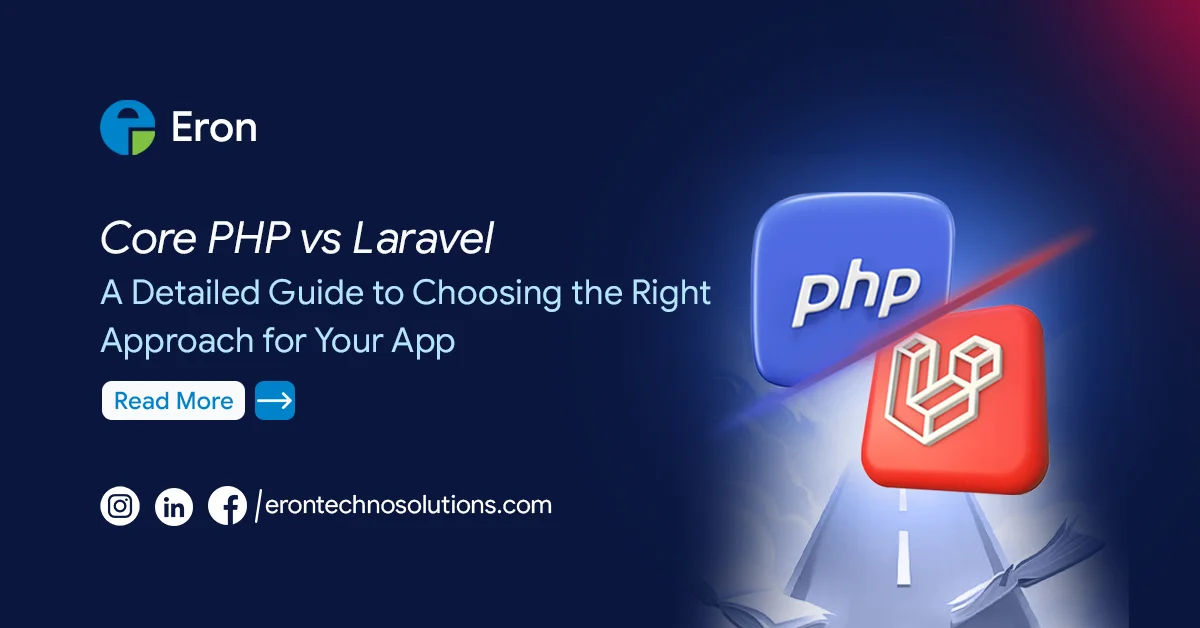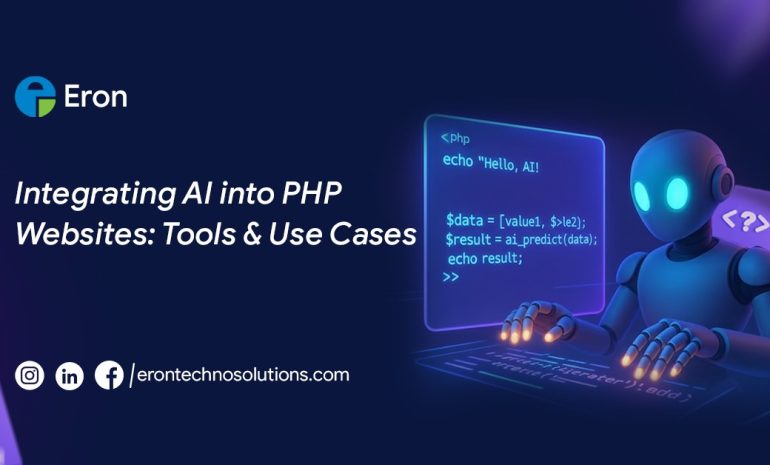When it comes to web application development, one of the most common debates is whether to build your project using Core PHP or adopt a modern framework like Laravel. Both approaches are rooted in PHP, one of the most widely used server-side scripting languages, but they differ greatly in structure, scalability, and developer experience. In this guide, we’ll explore Core PHP vs Laravel in depth, helping you decide which option is best for your next application.
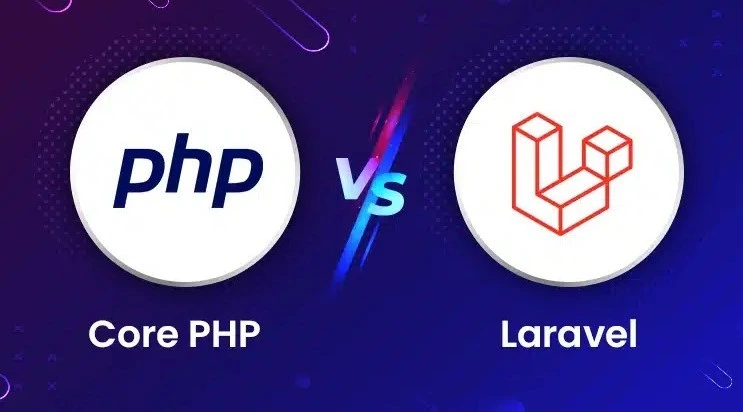
1. What is Core PHP?
Core PHP refers to using raw PHP code without any framework or external libraries. Developers write everything from scratch – from connecting to databases, handling sessions, validating forms, to managing security.
It gives you full control over how the application is built, but it also means you need to handle all aspects of coding, optimization, and security manually.
Use case: Core PHP is often suitable for small projects, simple websites, or when you want maximum control with minimal dependencies.
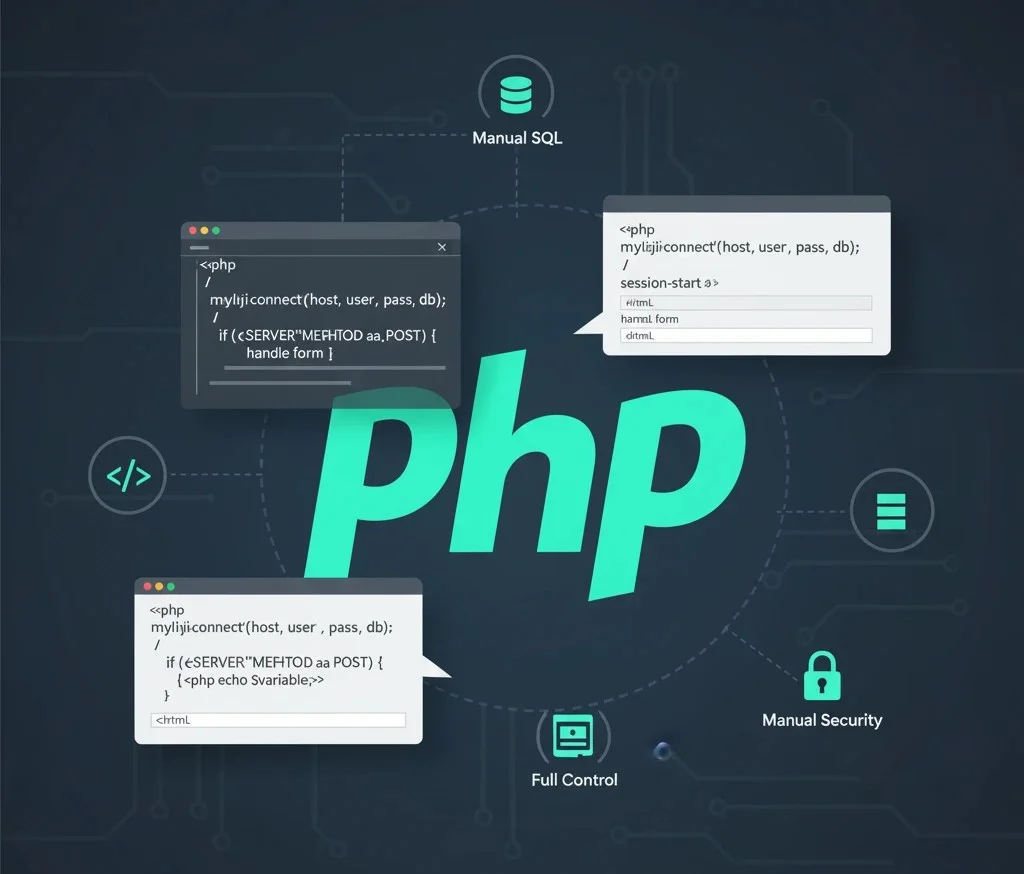
2. What is Laravel?
Laravel is a modern PHP framework that provides pre-built libraries, tools, and architectural patterns to speed up development. It follows the MVC (Model-View-Controller) structure, making the code more organized, reusable, and scalable.
Laravel comes with features like Eloquent ORM, Blade templating engine, authentication system, queue management, and built-in security features. It reduces repetitive tasks, allowing developers to focus on business logic rather than reinventing the wheel.
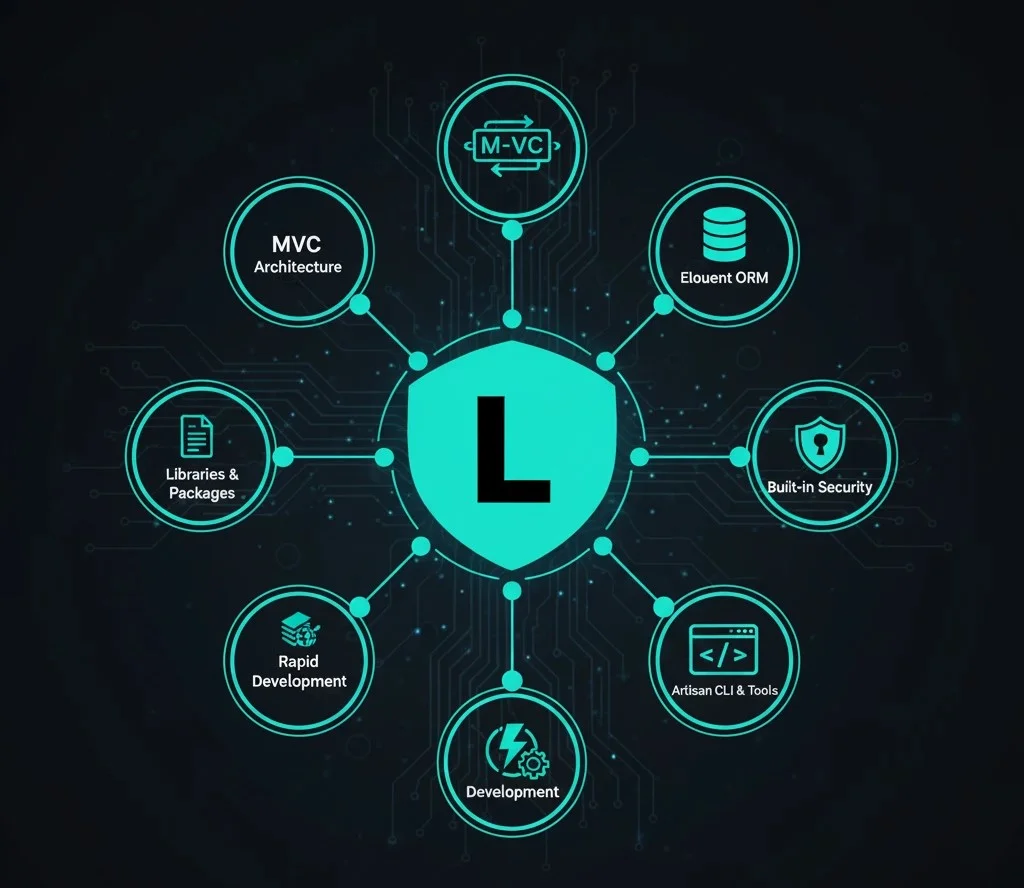
3. Core PHP vs Laravel – Key Differences
| Aspect | Core PHP | Laravel |
| Learning Curve | Easier for beginners (straightforward coding) | Steeper learning curve (MVC, ORM, Artisan commands) |
| Development Speed | Slower – everything must be coded manually | Faster – pre-built tools, Artisan CLI, and libraries |
| Code Structure | Unstructured, may get messy in large apps | Organized MVC architecture |
| Database Handling | Manual SQL queries | Eloquent ORM + Query Builder |
| Security | Must implement security manually | Built-in security (CSRF, XSS, SQL injection protection) |
| Scalability | Difficult for large projects | Highly scalable for enterprise apps |
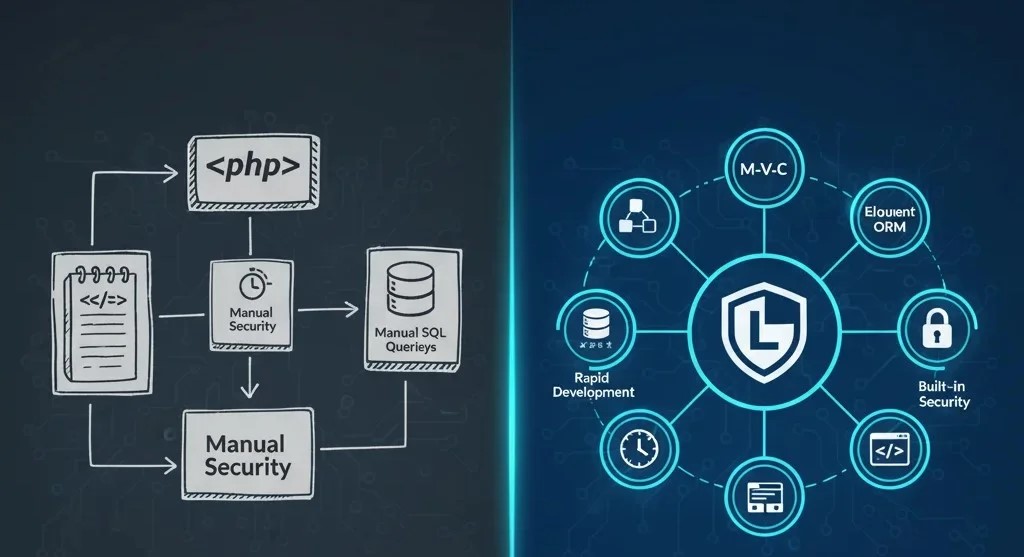
4. Advantages of Core PHP
- Full Control: You write code exactly the way you want without framework restrictions.
- Lightweight: No extra framework overhead; good for simple sites.
- Familiarity: Most PHP developers begin with Core PHP, making it easier for beginners.
- No Dependencies: Works on any server that supports PHP.
5. Advantages of Laravel
- Rapid Development: With Artisan commands, built-in authentication, and libraries, you can build apps quickly.
- MVC Architecture: Clean separation of concerns, making projects easier to scale and maintain.
- Eloquent ORM: Simplifies database operations without writing raw SQL.
- Security: Provides CSRF tokens, hashed passwords, and built-in guards against SQL injection.
- Community Support: Huge ecosystem of packages and a strong developer community.
- API Ready: Excellent support for REST APIs and integration with frontend frameworks like React or Vue.
6. When Should You Choose Core PHP?
- Small websites with basic functionality.
- Projects with limited budget and short timelines.
- When you want full control and minimal dependencies.
- For learning PHP fundamentals before moving to frameworks.
7. When Should You Choose Laravel?
- Building complex web applications (CRM, ERP, e-commerce, SaaS).
- Applications requiring scalability and modularity.
- Projects where security and maintainability are top priorities.
- Teams collaborating on enterprise-level applications.
8. Final Verdict: Core PHP vs Laravel
If your goal is a simple app or website, Core PHP can be a good starting point – it’s lightweight and gives you complete control. However, if you’re building a modern application that requires scalability, robust features, and long-term maintainability, Laravel clearly outshines Core PHP.
In today’s fast-paced development environment, frameworks like Laravel not only save time but also reduce errors and enhance security, making them the preferred choice for most businesses.
Conclusion
- For small-scale, quick projects, go with Core PHP.
- For professional, scalable applications, Laravel is the better choice.
